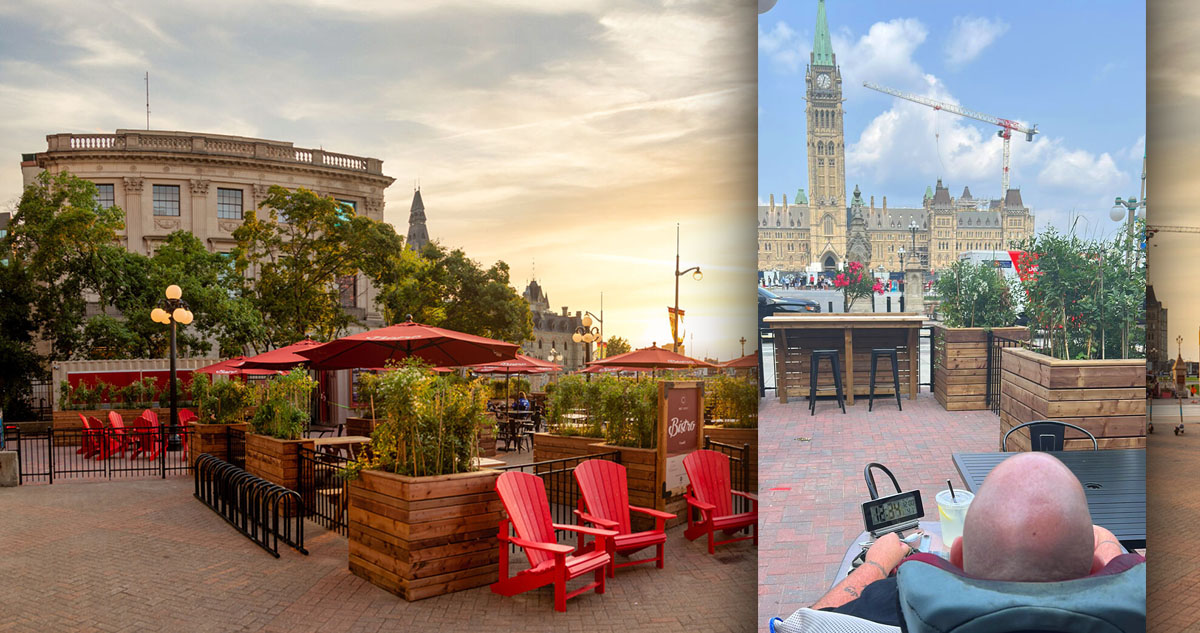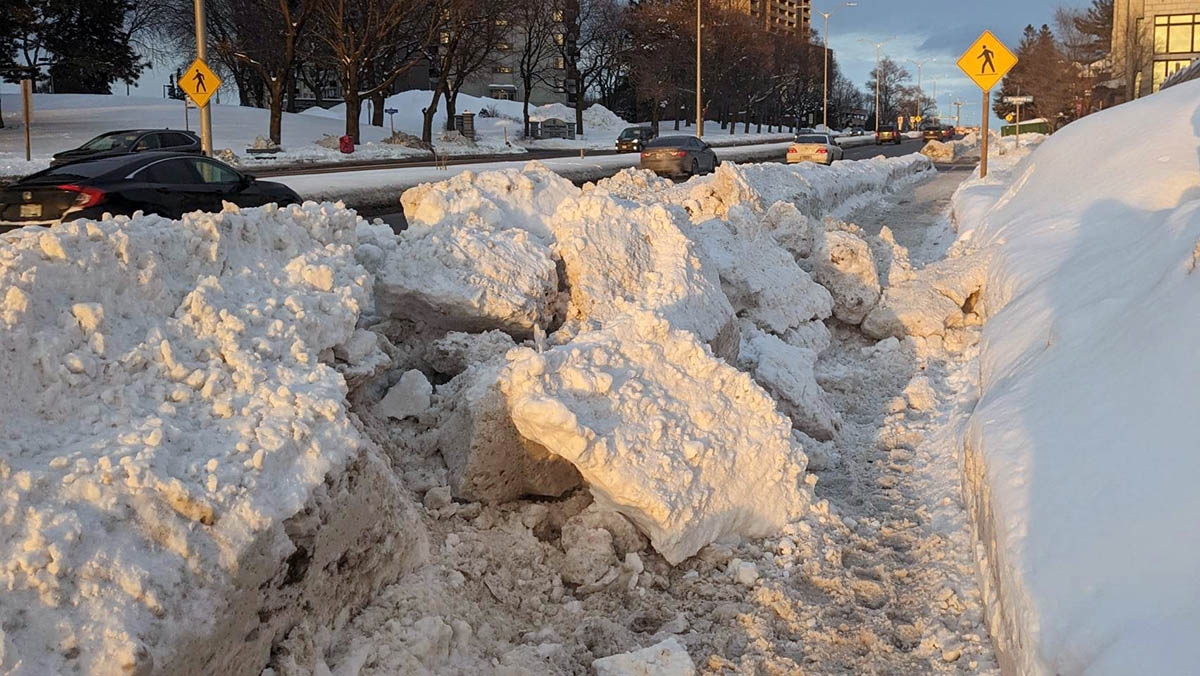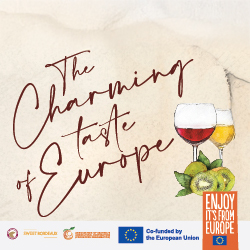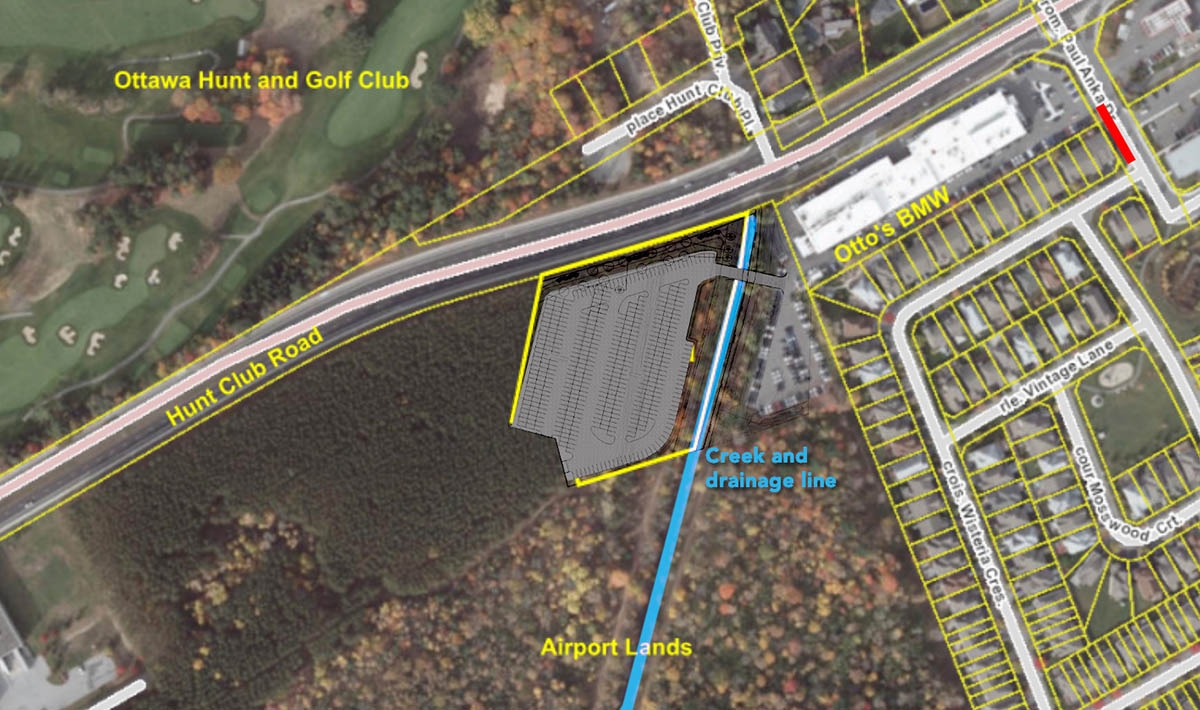
Cars erode greenspace; a quality transit system would not
ABOVE: Otto’s BMW wants to pave part of the Hunt Club forest to put in a parking lot. (PHOTO: Jason Dubue)
by Nick Grover
Once again, development planning in the city of Ottawa ignores climate change and public transit. And it’s no surprise given the political commitment to our high carbon, car-centric transport system—and the constant expansion of pavement over green space it requires.
One example is the unconscionable plan that would see a BMW dealership expand its parking lot into the Hunt Club forest, felling trees to sell cars. Another, is the provision in The Ottawa Hospital development plan to place a four story parking garage over the Queen Juliana Park. It would also remove an important section of the Trillium Line Multi-Use Path, making it harder for patients and staff to access the train line.
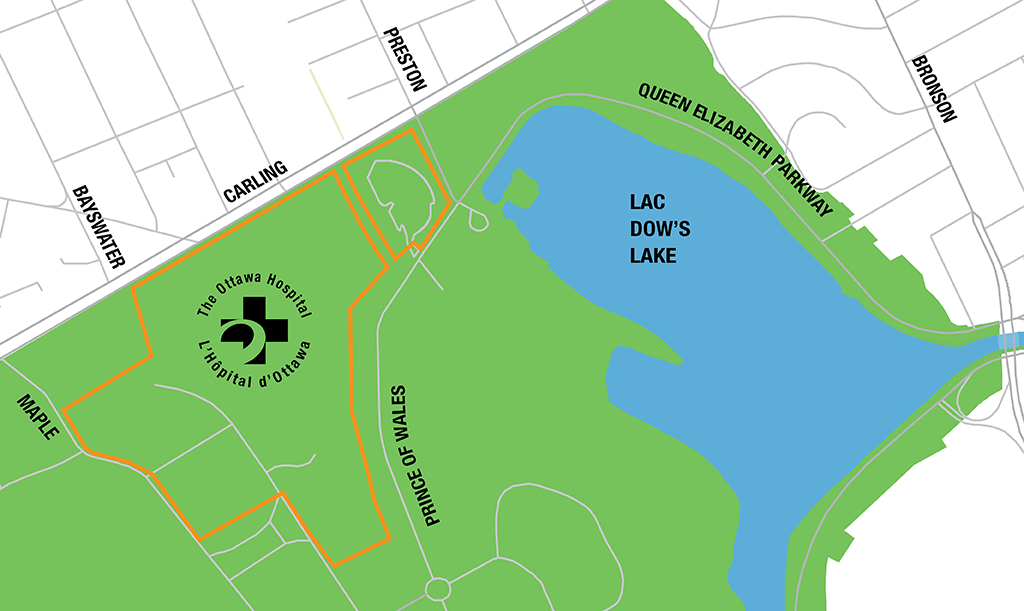
ABOVE: The orange outline indicates the location of the new Ottawa Hospital. (Photo:savecfbrockcliffe.blogspot.com)
It’s time to stop debating whether parking complexes should be located above or below ground, over this habitat or that one, and call into question the expansion of car infrastructure altogether.
We are in a climate crisis and transportation is the single largest source of carbon emissions in Ontario, with private vehicles accounting for the vast majority. There is no way to meaningfully reduce emissions without getting people out of cars and onto public transit. Electric cars are a false solution; as personal vehicles they still require far more resources per person than buses and generate incessant pressure to expand roads and parking lots into green space.
Planning must make driving less convenient and public transit more attractive. A straightforward approach is to limit parking space and redirect money towards improving transit reliability and accessibility.
In the TOH case, planners must narrow the distance between the LRT stop and the hospital, consider shuttle buses, a covered moving sidewalk, covered/heated bus stations on-site, and work with OC Transpo to increase the number of direct bus routes to the hospital campus, for example by restoring Route 3 along Prince of Wales. To entice transit use, and as a gesture of thanks for their work during the pandemic, the City should provide free bus passes to all hospital staff. This would complement the demand made recently by dozens of community associations of free transit for ODSP and OW recipients.
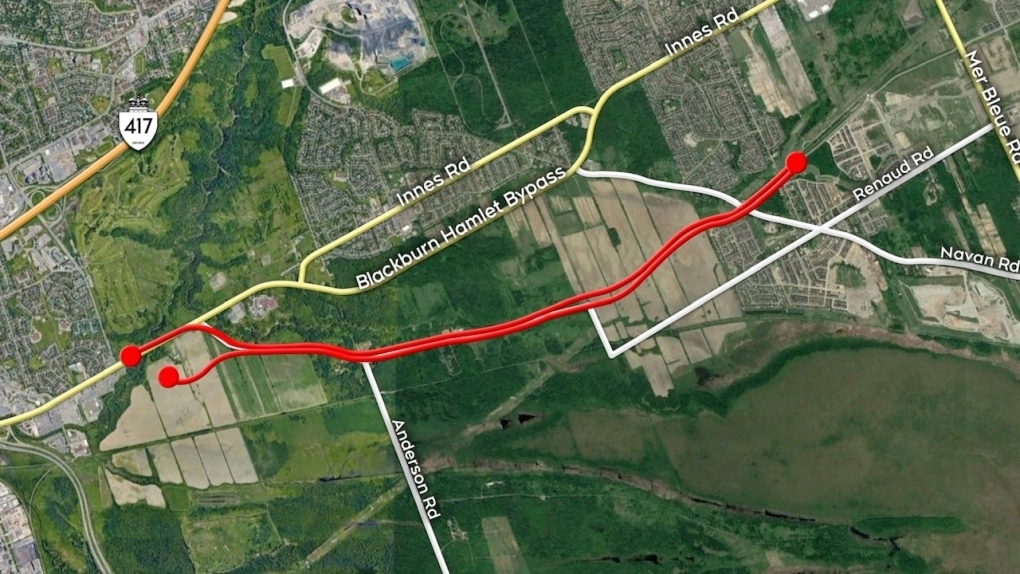
ABOVE: The proposed expansion to Brian Coburn Boulevard. (PHOTO: ottawacitizen.com)
The City betrays its affinity for cars over climate with its numerous road widening projects as well, for example the proposal to expand Brian Coburn Boulevard from four lanes to six into the Mer Bleue wetlands. Despite intentions to relieve congestion, widened roads consistently attract new traffic and are packed with cars again before long. While the plan also includes two dedicated bus lanes—which we absolutely need to improve service reliability—it should not be at the expense of green space. If the City is serious about reducing traffic congestion, they should convert existing car lanes into bus lanes rather than widen roads. It may seem counterintuitive but a 2001 study confirmed that when road space is repurposed for buses, bikes, or walking there was less congestion on the target street and surrounding area. Traffic was reduced by 22% on average and 11% most consistently, reducing pollution and increasing road safety. Put simply, “if we build it they will come.” Specific design schemes matter but the evidence shows shifting to sustainable transport is possible with some creative thinking.
This city will tackle neither congestion or pollution by continuing to prioritize car infrastructure. Millions of tax dollars are spent on new roads and parking lots for drivers, while transit riders get fare hikes and service cuts to an already unreliable system. If Ottawans had a choice—between reliable, comfortable, and affordable public transit or spending the $8,000 it costs on average to keep a car on the road—many would choose the former over the latter, saving our green spaces and reducing our climate impact in the process.
Nick Grover is a member of Free Transit Ottawa, a grassroots community group advocating for affordable, reliable, and accessible transit in the city of Ottawa.

